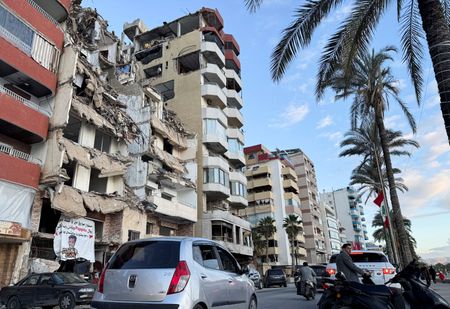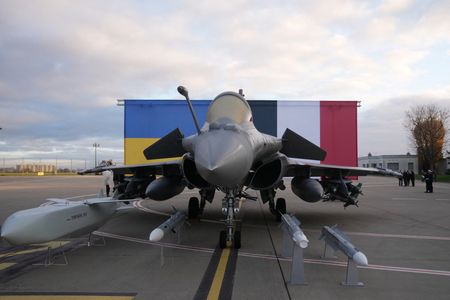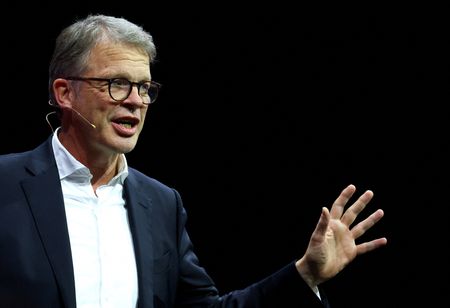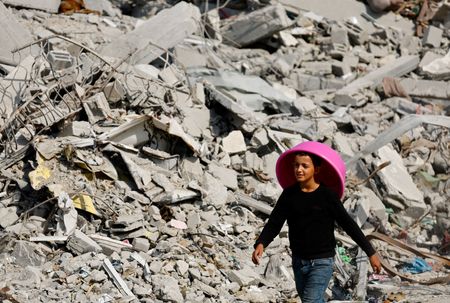BEIRUT/JERUSALEM (Reuters) -The Israeli army ordered thousands of displaced Lebanese not to return to villages near the border until further notice, a day after it said its forces would remain in south Lebanon beyond a Sunday deadline to withdraw.
The deadline is part of a ceasefire that ended last year’s war between Hezbollah and Israel. Brokered by Washington and Paris, the deal stipulated that Israeli forces should withdraw from south Lebanon as the Iran-backed group’s weapons and fighters are removed from the area and the Lebanese army deploys, within in a 60-day period which ends on Sunday.
But Israel said on Friday the terms had not been fully enforced by the Lebanese state, meaning Israeli troops would stay beyond Sunday, without saying for how long.
Lebanon’s U.S.-backed military on Saturday accused Israel of procrastinating in its withdrawal.
In a statement on social media platform X, the Israeli military posted a map showing an area of the south containing dozens of villages. It said until further notice residents remain forbidden from returning to their homes.
“Anyone who moves south of this line puts themselves in danger,” the statement said. The line stretches from Shebaa, less than 2 km (1.5 miles) from the border in the east, to Mansouri in the west – about 10 km (6 miles) from the border.
The ceasefire ended a war, which was fought in parallel with the Gaza war, and which peaked in a major Israeli offensive against Hezbollah that uprooted more than a million people in Lebanon and left the militant group badly weakened.
Hezbollah lawmaker Ali Fayyad said indications that Israel would not complete its withdrawal on time marked a dangerous development that threatens the course of the agreements agreed to by the Lebanese government.
The government should “re-evaluate the position, to explore the most effective ways to … impose the Israeli withdrawal and reassure the Lebanese, especially the southern community which is experiencing a state of extreme anger”, he said in a statement distributed by Hezbollah.
The Israeli military says it has been seizing Hezbollah weapons and dismantling its infrastructure in the south.
The White House said on Friday that a short, temporary ceasefire extension was urgently needed.
French President Emmanuel Macron told his Lebanese counterpart Joseph Aoun that he was making contacts to maintain the ceasefire and complete the implementation of the agreement, the Lebanese presidency said in a statement.
Aoun stressed to Macron the need to oblige Israel to implement the deal to preserve stability in the south.
Israel said its campaign against Hezbollah aimed to secure the return home of tens of thousands of Israelis forced by Hezbollah rocket fire to leave their homes in northern Israel.
The Lebanese army, in a statement issued on Saturday, urged Lebanese residents to wait before heading into the border region, citing the presence of mines and unexploded Israeli ordnance.
The army said it had continued to implement the plan to strengthen its deployment south of the Litani River since the ceasefire came into effect.
“Delays occurred in a number of the phases as a result of procrastination in the withdrawal by the Israeli enemy, which complicated the mission of the army’s deployment,” the statement said. The army “maintains its readiness to complete its deployment as soon as the Israeli enemy withdraws”.
(Reporting by Reporting by Menna Alaa El-Din, Ahmed Tolba, Tom Perry and Laila BassamWriting by Tom PerryEditing by Jason Neely, Toby Chopra, Peter Graff)











